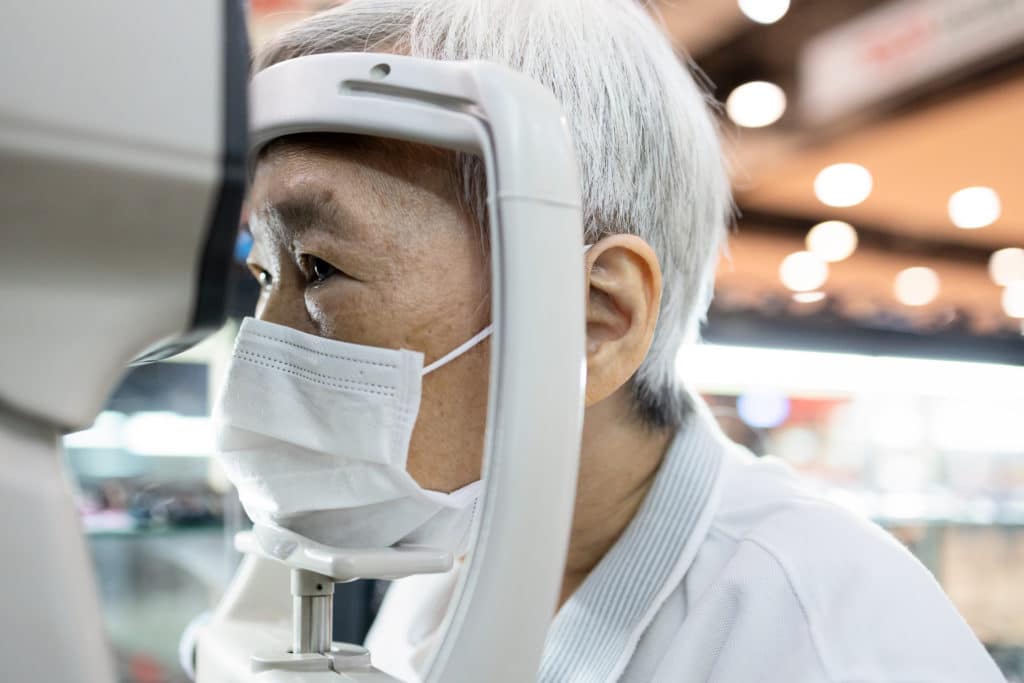
Jump to Section
What Does Comprehensive Eye Care Include?
Comprehensive eye care is a crucial component of your preventative eye health care and overall health care. Regular examinations with an ophthalmologist or medical optometrist are important to detect eye problems early, maintain your health, and determine what care may be necessary for you. A comprehensive eye exam typically involves the following:
- Reviewing your eye health and vision history, in addition to some of your overall health history. Your ophthalmologist or medical optometrist will want to know about any symptoms you experience, medication you are taking, family history, and the work or environmental conditions that may affect your eye health and vision.
- Visual acuity measurements, in which reading charts are typically used to determine how well you can distinguish letters on a chart near or far.
- Preliminary tests to evaluate your depth perception, color vision, peripheral or side vision, pupil response to light, or eye muscle movement.
- Refraction to determine the lens power you may need to compensate for refractive conditions like nearsightedness, farsightedness, or astigmatism. This involves using a phoropter to place a series of lenses in front of your eyes to determine which best improves your vision.
- Eye focusing, eye teaming, and eye movement testing to screen for issues with focusing the eyes correctly or easily using both eyes together.
- Eye health evaluations using instruments such as microscopes, digital technology, or dilating eye drops.
- Supplemental testing as necessary.
Who Should Have a Comprehensive Eye Exam?
Everyone should have regular comprehensive eye exams, regardless of whether they experience symptoms or vision issues. This includes adults as well as children and infants.

How Often Do You Need a Comprehensive Eye Exam?
Scheduling your comprehensive eye exam will vary depending on factors like your age, symptoms, and known eye health or vision needs.
For infants, it is generally recommended to have a comprehensive eye exam at least once before 6-12 months. Children should then have at least one comprehensive eye exam between the ages of 3 and 5, and annually from ages 6-17.
Adults who are asymptomatic or at low risk for eye health complications should have a comprehensive eye exam every two years until age 65. Those who have symptoms, are at risk, or are above 65 should have annual routine eye exams. You are considered high risk if you have a family history of ocular disease, wear contact lenses, take medications with potential ocular side effects, have had eye surgery, have certain medical conditions, or have other concerns. Your ophthalmologist or medical optometrist at Boston Vision will recommend how frequently you should have a comprehensive exam.
Related Comprehensive Eye Care Pages:
Eye Dangers
Conjunctivitis
Giant Papillary Conjunctivitis
Strabismus
Smoking & Eye Disease
First Aid For Your Eyes
Inserting Eye Drops
Preventing Eye Injuries
Flashes & Floaters
Allergies and the Eyes
Video Display Terminals
Recycling Eye Glasses
Schedule an Appointment
To schedule an appointment at Boston Vision for your comprehensive eye care email book an appointment online or try giving us a call at 617-202-2020.
General eye exams and care are available at all of our eight office locations: Brookline, Milford, Medford, Lawrence, Wellesley, Burlington, and Andover.





